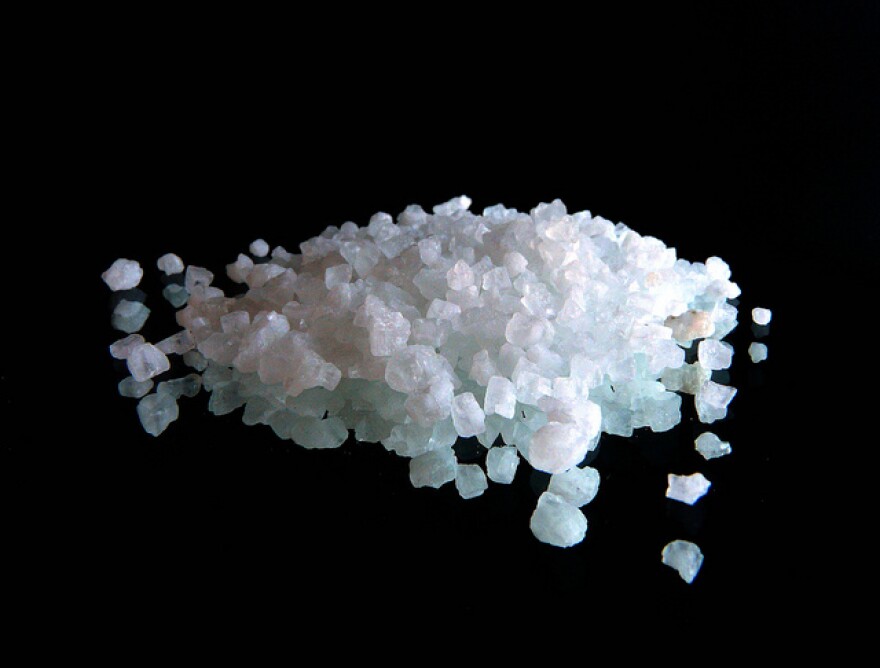If your mouth begins to water when you think about pretzels, peanuts and French fries, then you probably like salty foods. If this is true, then you are one of the many who love salt. But while some people understand that too much salt intake isn’t healthy, most don’t realize that cutting back on salt means more than just avoiding the salt shaker during meal time.
This week on Take Care, Dr. Norman Kaplan discusses salt’s effect on the body, and why people should be much more aware of how much salt they are actually taking in. Dr. Kaplan is a professor of internal medicine at the University of Texas Southwestern Medical Center in Dallas, where he’s been on the faculty for over four decades. His book, Kaplan’s Clinical Hypertension, is currently in its 10th edition.
Click 'Read More' to hear our interview with Dr. Kaplan.
Salt primarily affects the body’s blood pressure, and while people have different sensitivities to salt, the effect of it is still the same from person to person. When a person has too much salt, it is normally held in the kidneys, where it then enters the blood stream.
“Our blood is basically a salt solution, so it expands the amount of fluid within the circulation. And that’s like putting too much water into a pipe. The blood pressure obviously goes up when there is too much fluid volume,” said Dr. Kaplan.
Just because you’re not suffering from high blood pressure doesn’t mean that you’re not taking in too much salt. “We’re eating twice or more the amount of salt than we believe is healthy,” said Dr. Kaplan.
So where is all of that salt coming from? Dr. Kaplan says, “About 80 percent of the sodium that we take in to our body comes not at the table when we add it with a salt shaker, but it’s in the foods that have been processed.”
Salt was originally added to processed foods as a way to preserve them, a practice that is no longer needed with the invention of the refrigerator. Dr. Kaplan points out two reasons why so much salt is still included in the foods we buy from the supermarket. The first is that adding salt can increase the volume of the food, especially in things like cans of soup. The second is simply because “we like salt.”
Instead of saying people should simply cut back on sodium heavy foods, Dr. Kaplan places much of the responsibility on the food processors themselves. “It’s tough for an individual person to do it because we have to have foods that we don’t make that are processed in one way or another, so it’s the food processers that we are really trying to convince to cut down the sodium in the food,” he says. Kaplan says there has been a reduction in the average amount of salt in processed food over the years, but the change has been fairly small, and he says, more can still be done.
While there are tests that can determine how sensitive one is to salt and sodium, Dr. Kaplan believes that “everyone should assume that eventually they’re going to have a problem with blood pressure.” The hope is that they’ll make sodium-conscious decisions in their diet from a young age in order to prevent problems down the road.
As for people already dealing with high blood pressure due to sodium intake, a change in diet can result in positive changes. Dr. Kaplan cautions that patience is needed for this though, as a fall in blood pressure may not happen for roughly a month.


